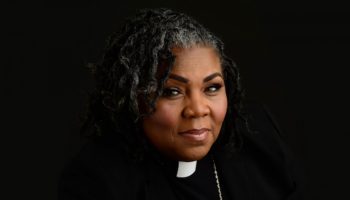Ariel S. Bowen was born Ariel Serena Hedges on March 3, 1863, in Newark, New Jersey, to Harriet Taylor and Charles Hedges. An “accomplished vocalist and musician,” according to the African American Registry, Bowen was also literate in Greek, Latin and German, and well-versed in piano and pipe organ. Bowen was raised around cultured individuals and settings with the educational advantages of a privileged childhood. As a young girl, she lived in Pittsburgh, attended Avery Institute, and received musical training before relocating with her family to Baltimore around 1873.
In Baltimore, Bowen received an education from the Madison Avenue Presbyterian Church’s school, and later graduated with honors from Springfield Massachusetts High School in 1885. After high school, Bowen passed the teachers’ course and examination and began teaching in Springfield. She then went on to teach history and English under Booker T. Washington at Tuskegee Normal and Industrial Institute in Tuskegee, Alabama, and later taught music at Clark University in Atlanta.
On Sep. 14, 1886, Ariel married John Wesley Edward Bowen and subsequently had four children — three of whom survived to adulthood (Irene, Juanita and John Wesley Edward Jr.) and one (Portia Edmonia) who died in early childhood. Bowen and her husband lived in Washington, D.C., and together served the Methodist Episcopal Church. Bowen eventually organized and served as the first president of the Washington Methodist Episcopal Church’s Woman’s Home Missionary Society and assisted in pastoral duties at Asbury Methodist Episcopal Church. During this time, Bowen enrolled in the Chautauqua Literary and Scientific Circle and graduated as a member of the “Columbia” Class of 1892. The following year, Bowen moved to Atlanta where her husband began teaching at Gammon Theological Seminary. She immersed herself in Atlanta’s community organizations, becoming a member of the Georgia Federation of Colored Women’ Clubs. She served as president of the Women’s Club of Atlanta and Colored Women’s Club of Georgia, and as a committee member at the Atlanta Congress of Colored Women in 1895.
As “one of the foremost and best cultured women of her race,” according to Prabook.com, Bowen often published articles about moral and social reform, and was particularly devoted to the cause of the Woman’s Christian Temperance Union, serving as president of the second Georgia WCTU, and becoming so well-respected among Black women for her work with the organization that it is said they esteemed her alongside Frances Willard, the WCTU founder.
In 1876, Willard attended the Chautauqua Assembly to discuss the work of the Woman’s Christian Temperance Union as “an interesting and convincing platform speaker,” according to an edition of The Voice of the Negro. Bowen delivered an evening lecture about the “Work of the WCTU No. 2 of Georgia” in August 1899. Five years later, Bowen suddenly died on July 7, 1904, while attending the St. Louis World’s Fair for a meeting of the National Association of Colored Women. Bowen was 41 years old.
—Emálee Sanfilippo, Independent Research Consultant




